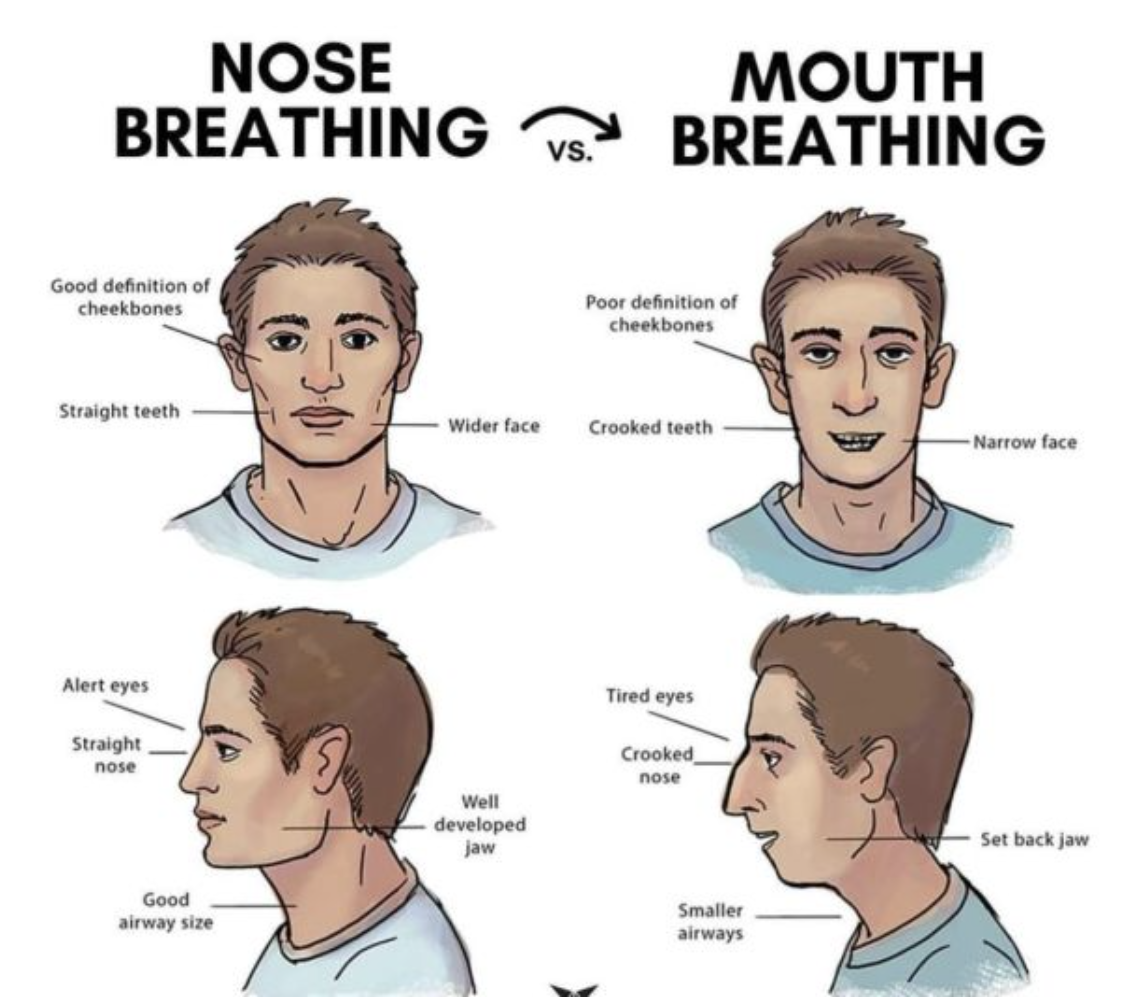Nasal Breathing

Ever woken up with a dry mouth, groggy head, or feeling like you barely rested? It could be due to how you're breathing while you sleep. Many people unknowingly breathe through their mouths at night, which can have surprising consequences on overall health, facial structure, and even bacterial balance in the body. But nasal breathing isn't just crucial for sleep—it plays a major role in how we feel, function, and perform throughout the day.
Why Nasal Breathing is Essential
Breathing through your nose is how we're designed to breathe. It filters, warms, and humidifies the air, optimizes oxygen absorption, and even releases nitric oxide, which improves circulation and supports immune function.
On the other hand, mouth breathing can cause:
X Poor sleep quality - Snoring, sleep apnea, and restless sleep are often linked to mouth breathing.
X Dry mouth & bad breath - Bacteria thrive when the mouth is dry, leading to cavities and gum disease.
X Altered facial development - Chronic mouth breathing in children can lead to a long, narrow face, misaligned teeth, and poor posture.
X Increased stress & inflammation - Nasal breathing activates the parasympathetic (rest-and-digest) system, while mouth breathing can keep the body in a low-level fight-or-flight state.

The Benefits of Nasal Breathing During the Day & Exercise
Breathing through your nose isn't just about better sleep—it can also improve:
- Energy & Mental Clarity - Nasal breathing promotes relaxation and helps regulate stress.
- Athletic Performance - More efficient oxygenation leads to better endurance, lower heart rate, and reduced muscle fatigue.
- Posture & Facial Structure - Proper tongue posture (resting on the roof of the mouth) supports jaw alignment and airway health.
How to Ensure You're Nasal Breathing at Night
If you suspect you're mouth breathing while sleeping, try mouth taping. Using specialized mouth tape (or medical-grade tape) can help train your body to breathe nasally, improving sleep quality and reducing snoring, dry mouth, and fatigue.
Tip: If you're new to mouth taping, start by wearing it for short periods while awake to get used to the sensation.
Breathing is something we do automatically, but how we breathe makes all the difference. Whether you're sleeping, working, or exercising, try tuning into your breath and keeping it nasal - you might be surprised by how much better you feel!
Breathe better, live better.

